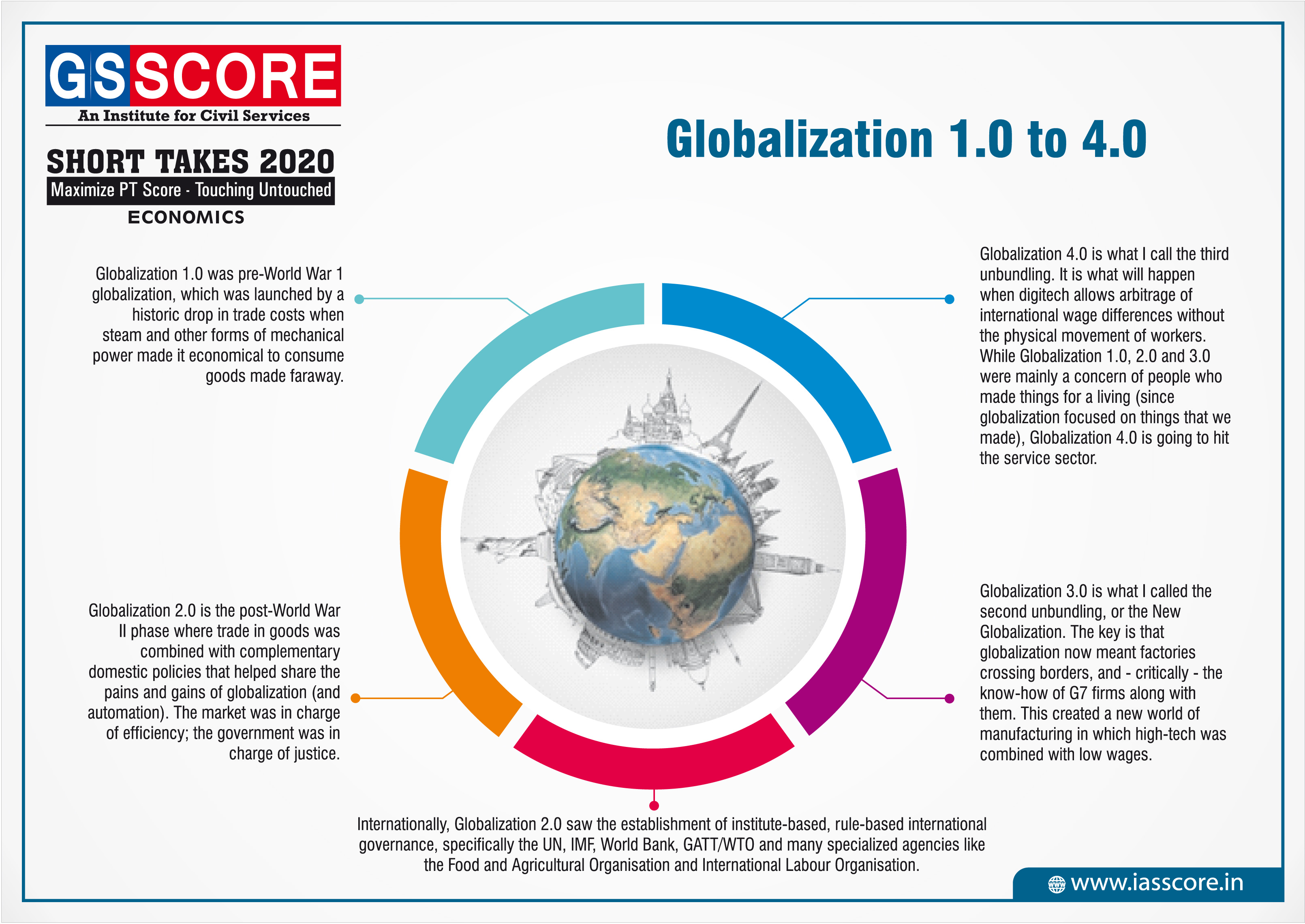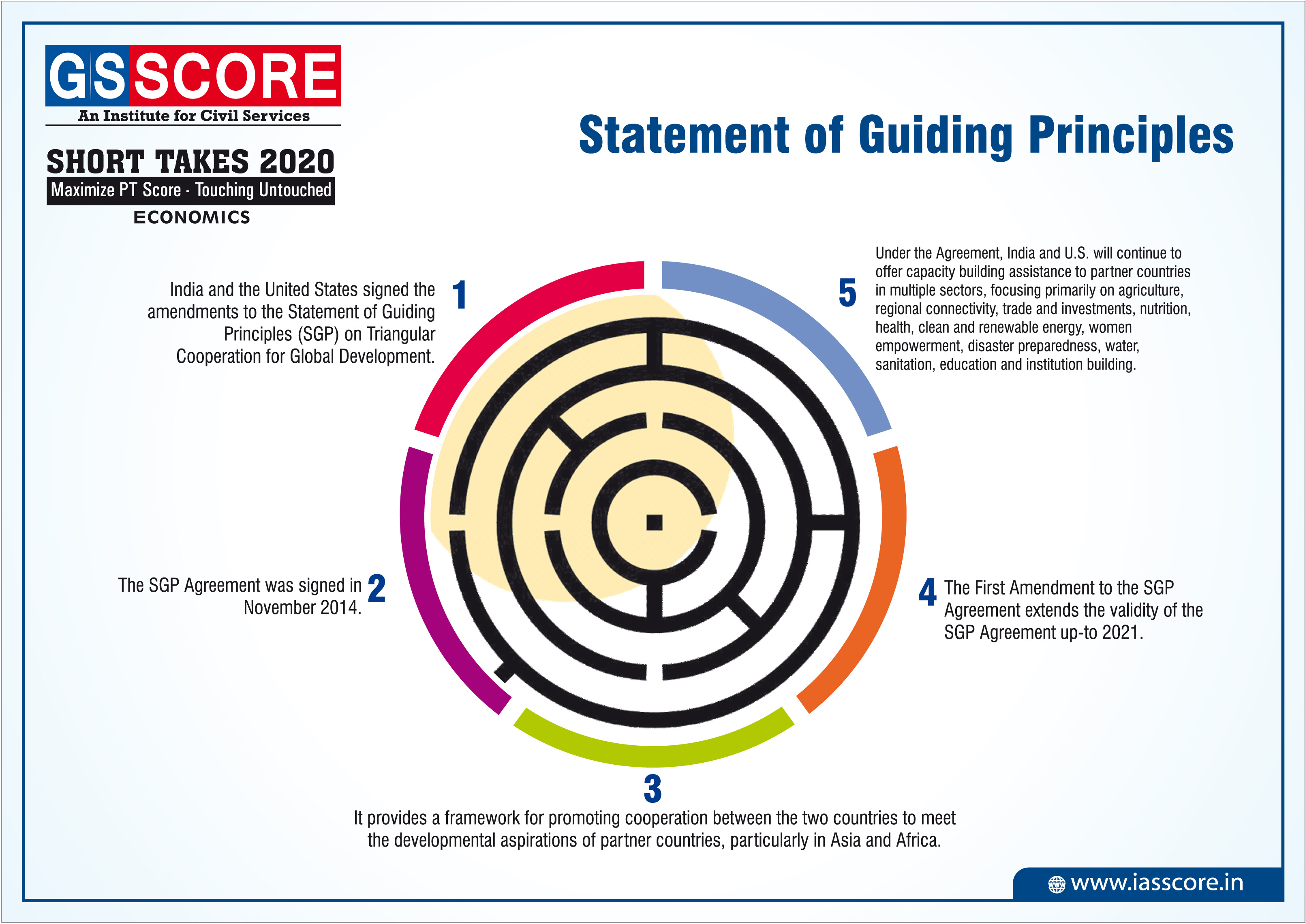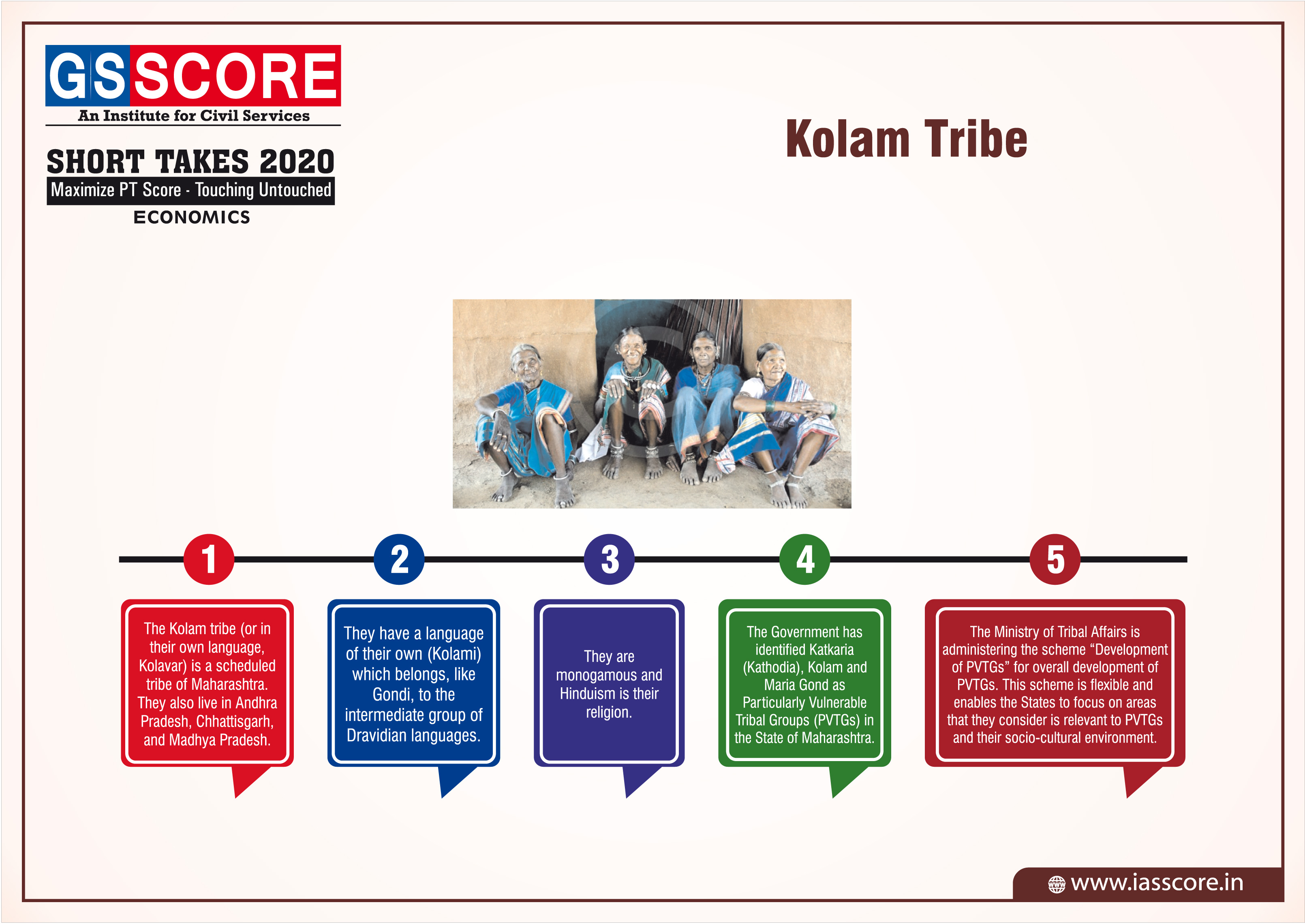Polity: Political Dynamics
‘NAGPUR RESOLUTION: A HOLISTIC APPROACH FOR EMPOWERING CITIZENS’
Context
- The ‘Nagpur Resolution- A holistic approach for empowering citizens’ was adopted during the Valedictory session of the two-day Regional Conference on ‘Improving Public Service Delivery – Role of Governments’.
About
- The conference was organised by the Department of Administrative Reforms and Public Grievances (DARPG), Government of India, in collaboration with the Government of Maharashtra and the Maharashtra State Commission for Right to Public Services.
- Positive approach, transparency, corruption-free system, fast track decision making and social sensitivity are essential to good governance.
- Performance audit of public servants should be done at regular intervals.
- The Conference also resolved to adopt a holistic approach of systemic public grievance reforms through improved mapping, formulation of monitoring matrix, data collection and evaluation in quality of grievance redressal, and to provide an enabling environment for States and Ministries/Departments of the Government of India for creating web portals and to adopt a holistic approach for improved service delivery through digital platforms.
- The Resolution focuses on dynamic policy making and strategic decisions, monitoring of implementation, appointment of key personnel, coordination and evaluation, and achieving a sense of common identity by exchange of technical expertise in the areas of Improved Service Delivery between paired States under the Ek Bharat Shreshtha Bharat Program.
Major Objectives
- To empower the citizens by policy interventions for better service delivery through timely updation of citizens charters, implementation of enactments and benchmarking standards for continuous improvement;
- To empower citizens by adopting a bottom-up approach to bring massive improvements in quality of grievance redressal and reduction in timelines of grievance redressal;
- To adopt a holistic approach of systemic public grievance reforms through improved mapping, formulation of monitoring matrix, data collection and evaluation in quality of grievance redressal ;
- To provide an enabling environment for States and Ministries/ Departments of the Government of India for creating web portals and to adopt a holistic approach for improved service delivery through digital platforms;
- To focus on dynamic policy making and strategic decisions, monitoring of implementation, appointment of key personnel, coordination and evaluation;
- To achieve a sense of common identity by exchange of technical expertise in the areas of Improved Service Delivery between the paired States under the Ek Bharat – Shresht Bharat Program;
- To work towards long-term engagements in the areas of Improved Service Delivery for Empowering Citizens through greater cooperation between the DARPG and the participating States and,
- To ensure timely publication of Good Governance Index to identify the quality of governance in 10 sectors especially those pertaining to welfare and infrastructure at the Union, State and District levels.
Khadi and Village Industries Commission (KVIC)
Context
- To commemorate 150th Birth Anniversary of Mahatma Gandhi and to support the weaker section of the society in Agartala, Khadi and Village Industries Commission (KVIC) organized a distribution of 1000 Bee Boxes, 100 Pottery Wheels and 100 Advanced Leather Tool kits 100 Farmers, 100 Potters and 100 Leather Artisans recently.
About
- This mega equipment distribution and Capacity Building drive will create a livelihood and will provide employment to 700 people.
- The programs like Honey Mission, Empowerment of Leather Artisans and Kumhar Sashaktikaran Mission will not only instill self-confidence but give a much required boost to strengthen the weaker section of the society.
- Tripura has a lot of potential of Bee Keeping and Pottery because of large scale cultivation of rubber plants and use of traditional terracotta products in their households.
About KVIC
- The Khadi and Village Industries Commission (KVIC) is a statutory body formed by the Government of India, under the Act of Parliament, 'Khadi and Village Industries Commission Act of 1956'.
- It is an apex organisation under the Ministry of Micro, Small and Medium Enterprises, with regard to khadi and village industries within India.
- It seeks to - "plan, promote, facilitate, organise and assist in the establishment and development of khadi and village industries in the rural areas in coordination with other agencies engaged in rural development wherever necessary.
- The KVIC may also undertake directly or through other agencies studies concerning the problems of Khadi and/or village industries besides research or establishing pilot projects for the development of Khadi and village industries.
- The KVIC is authorized to establish and maintain separate organisations for the purpose of carrying out any or all of the above matters besides carrying out any other matters incidental to its activities.
- The broad objectives that the KVIC has set before it are:
-
- The social objective of providing employment.
- The economic objective of producing saleable articles.
- The wider objective of creating self-reliance amongst the poor and building up of a strong rural community spirit.
India-Saudi Arabia Constitute Strategic Partnership Council
Context
- PM Modi announced the formation of the India-Saudi Strategic Partnership Council that will be led by the leaderships of both countries.
- The announcement was made in the Saudi capital Riyadh where PM Modi paid a visit.
About
- A key takeaway of the PM visit to Saudi Arabia is the Strategic Partnership Council.
- 12 MoUs on issues such as preventing narcotics trafficking, renewable energy, training of diplomats, defence industry production, security collaboration, Haj related cooperation, Atal Innovation Mission, bilateral air services and the use of RuPay cards in Saudi Arabia were inked.
- Apart from defence, the two sides are keen to enhance maritime security cooperation and are considering joint naval exercises in 2020
- India and Saudi Arabia firmed their strategic partnership by signing an agreement to form a council headed by Prime Minister Modi and King Salman.
- It would enable regular monitoring of the progress of the strategic partnership.
- The council will have two parallel mechanisms under it — one to look at political and diplomatic ties and the second to supervise commercial and energy ties.
- This is a major development since Saudi Arabia is now only the fourth country with whom India has an inter-governmental mechanism headed by the prime minister. Germany, Russia and Japan are the other three.
Recent Developments:
- Crown Prince of Abu Dhabi was the Chief Guest of the 2017 Republic Day of India.
- India was designated as the Guest of Honour country at Abu Dhabi Music and Art festival 2018.
- India and UAE signed an MOU for cooperation in Africa.
- India UAE had their first bilateral Naval exercise in March 2018 named ‘Gulf Star 1’, which took place off the coast of Abu Dhabi.
- India UAE signed a currency swap agreement in December last year which will boost trade and economic relationships between two countries and reduce India’s dependence on the US dollars.
- Abu Dhabi National Oil Company (ADNOC) has signed an agreement to explore storing Crude oil in the Indian Strategic Reserve in Padur.
- ADNOC also filled up 1.5 million tonnes of crude oil in Mangalore strategic reserve, the only foreign and private player so far to have invested in storing in Indian strategic reserve.
- Abu Dhabi government allotted land for the construction of the first Hindu Temple in Abu Dhabi. There are two Hindu temples in the UAE, both in Dubai.
- UAE and India signed an MOU in the field of manpower exploring the possibility of linking their respective e-platforms for the benefit and welfare of Indian workers going to UAE.
- India and UAE are fast-tracking food corridor.
- This will entail investment by UAE in the Indian agriculture sector benefiting farmers and creating additional jobs in food processing logistics etc.
- It will also help in food security for the UAE.
- The UAE is one of the biggest overseas markets for Indian cinema apart from the UK and the USA.
India-Saudi Arabia Relations:
- Trade and cultural links between ancient India and Arabia dating back to the third millennium BC.
- By 1000 AD, the trade relations between southern India and Arabia flourished and became the backbone of the Arabian economy.
- Arab traders held a monopoly over the spice trade between India and Europe until the rise of European imperialist empires.
- India was one of the first nations to establish ties with the Third Saudi State.
- During the 1930s, India heavily funded Nejd through financial subsidies.
Political Dynamics
Political Parties
- Political parties are voluntary associations or organised groups of individuals who share the same political views and who try to gain political power through constitutional means and who desire to work for promoting the national interest.
- There are four types of political parties in the modern democratic states, viz.,
- Reactionary parties which cling to the old socio-economic and political institutions;
- Conservative parties which believe in the status-quo;
- Liberal parties which aim at reforming the existing institutions; and
- Radical parties which aim at establishing a new order by overthrowing the existing institutions.
- According to the political scientists, the radical parties are known as the left wing, the liberal parties the central wing and reactionary and conservative parties clubbed into the right wing group.
- There are three kinds of party systems in the world, viz.,
- One party system in which only one ruling party exists and no opposition is permitted, as for example, in the former communist countries like the USSR and other East European countries;
- Two-party system in which two major parties exists, as for example, in USA and Britain; and
- Multi-party system in which there are a number of political parties leading to the formation of coalition governments, as for example, in France, Switzerland and Italy.
The various characteristics of the Multi-Party system are mentioned below:
- Multi-Party System
- One-Dominant Party System
- Lack of Clear Ideology
- Personality Cult
- Based on Traditional Factors
- Emergence of Regional Parties
- Factions and Defections
- Lack of Effective Opposition
Recognition of National and State Parties
- The Election Commission registers political parties for the purpose of elections and grants them recognition as national or state parties on the basis of their poll performance.
- The other parties are simply declared as registered unrecognised parties.
Conditions for Recognition as a National Party
- At present (2016), a party is recognised as a national party if any of the following conditions is fulfilled:
- If it secures six per cent of valid votes polled in any four or more states at a general election to the Lok Sabha or to the legislative assembly; and, in addition, it wins four seats in the Lok Sabha from any state or states; or
- If it wins two per cent of seats in the Lok Sabha at a general election; and these candidates are elected from three states; or
- If it is recognised as a state party in four states.
Conditions for Recognition as a State Party
- At present (2016), a party is recognised as a state party in a state if any of the following conditions is fulfilled:
- If it secures six per cent of the valid votes polled in the state at a general election to the legislative assembly of the state concerned; and, in addition, it wins 2 seats in the assembly of the state concerned; or
- If it secures six per cent of the valid votes polled in the state at a general election to the Lok Sabha from the state concerned; and, in addition, it wins 1 seat in the Lok Sabha from the state concerned; or
- If it wins three per cent of seats in the legislative assembly at a general election to the legislative assembly of the state concerned or 3 seats in the assembly, whichever is more; or
- If it wins 1 seat in the Lok Sabha for every 25 seats or any fraction thereof allotted to the state at a general election to the Lok Sabha from the state concerned; or
- If it secures eight per cent of the total valid votes polled in the state at a General Election to the Lok Sabha from the state or to the legislative assembly of the state. This condition was added in 2011.
Electoral Reforms
- There are various committees and commissions which have examined our electoral system, election machinery as well as election process since 1988 and suggested certain reforms which are mentioned below:
- Lowering of voting Age: The 61st Constitutional Amendment Act of 1988 reduced the voting age from 21 years to 18 years for the Lok Sabha as well as the assembly elections.
- Increases in number of Proposers: In 1988, the number of electros who are required to sign as proposals in nomination papers for elections to the Rajya Sabha and state legislative council has been increased to 10% of the electors of the constituency or 10 such electors, whichever is less. This was done in order to prevent frivolous candidates from contesting.
- Electronic voting Machines: In 1989, a provision was made to facilitate the use of EVMs in elections. The EVMs were used for the first time in 1998 on experimental basis in selected constituencies in the election to the Assemblies of Rajasthan, Madhya Pradesh and Delhi. The EVMs were used for the first time in the general elections (entire state) to the Assembly of Goa in 1999.
- Booth Capturing: In 1989, a provision was made for adjournment of poll or countermanding of elections because of booth capturing. Both capturing includes: (i) Seizures of a polling station and making polling authorities surrender ballot papers or voting machines; (ii) taking possession of polling station and allowing only one’s own supporters to exercise their franchise; (iii) threatening and preventing any elector from going to polling station; and (iv) seizure of a place for counting of votes.
- Presidential and Vice-Presidential Elections: In 1997, the number of electors as proposers and secondary for contesting election to the office of the President was increased from 10 to 50 and to the office of the vice-president from 5 to 20. Further, the amount of security deposit was increased from Rs. 2,500 to Rs. 15,000 for contesting election to both the offices of president and vice-president to discourage frivolous candidates.
- Voting Through Postal Ballot: In 1999, a provision was made for voting by certain classes of persons though postal ballot. Thus, any class of persons can be notified by the election Commission, in consultation with the government, and the persons belonging to such notified class can give their votes by postal ballot, and not in any other manner, at elections in their constituency or constituencies. In 1990, the National Front Government appointed a Committee on Electoral Reforms under the chairmanship of Dinesh Goswami. The Committee was asked to study the electoral system in detail and suggest measures for remedying the drawbacks in the system. The committee, its report submitted in 1990 itself, made a number of proposals on electoral reforms. Some of these recommendations were implemented in 1996.
- Increase in Security Deposit: The amount of security deposit to be paid by the candidates contesting elections to the Lok Sabha was increased from Rs. 500 to Rs. 10,000 for the general candidates and from Rs. 250 to Rs. 5,000 for SC and ST candidates. Similarly, the security deposit in the case of elections to the state legislative assembly was increased from Rs. 250 to Rs. 5,000 for the general candidates and from Rs. 125 to Rs. 2,500 for the SC and ST candidates. This was done in order to check the multiplicity of non serious candidates.
- Listing of Names of Candidates: The candidates contesting elections are to be classified into three categories for the purpose of listing of their names. They are:
- Candidates of recognized political parties;
- candidates of registered unrecognized political parties; and
- other (independent) candidates -Their names in the list of contesting candidates and in the ballot papers has to appear separately in the above order and in each category they have to be arranged in the alphabetical order.
- Disqualification for Insulting the National Honour Act: A person who is convicted for the following offences under the Prevention of Insults to National Honour Act of 1971 is disqualified to contest in the elections to the Parliament and state legislature for 6 years: Offence of insulting the National Flag; Offence of insulting the Constitution of India; and Offence of preventing the singing of National Anthem.
- Offence on the sale of Liquor: No liquor or other intoxicants are to be sold or given or distributed at any shop, eating place, hotel or any other place whether public or private within a polling area during the period of 48 hours ending with the hour fixed for the conclusion of poll. Any person who violates this rule is to be punished with imprisonment upto 6 months or with fine up to Rs. 2,000 or with both.
- Number of Proposers: The nomination of a candidate in a Parliamentary or assembly constituency should be subscribed by 10 registered electros of the constituency as proposers, if the candidate is not sponsored by a recognized political party. In the case of a candidate sponsored by a recognized political party, only one proposer is required. This was done in order to discourage the disinterested people from contesting the elections.
- Death of a Candidate: Earlier, in case of death of a contesting candidate before the actual polling, the election used to be countermanded. Consequently, the election process had to start all over again in the concerned constituency. But now, the election would not be countermanded on the death of a contesting candidate before the actual polling. However, if the deceased candidate belonged to a recognized political party, the party concerned would be given an option to propose another candidate within 7 days.
- Time Limit for Bye-elections: Now, bye-elections are to be held within 6 months of occurrence of the vacancy in any House of Parliament or a state legislature. But, this condition is not applicable in two cases:
- Where the remainder of the term of the member whose vacancy is to be filled is less than one year; or
- When the Election commission, in consultation with the Central Government, certifies that it is difficult to hold the bye-elections within said period.
- Holding to Employees on the polling Day: The registered voters, employed in any trade, business, industry or any other establishment are entitled to a paid holiday on the polling day. This rule applies even to the daily wagers. Any employer who violates this rule to be punished with a fine up to Rs. 500. However, this rule is not applicable in the case of a voter whose absence may cause danger or substantial loss in respect of the employment in which he is engaged.
- Restricted to Two Constituencies: A candidate would not be eligible to contest from more than two Parliamentary or assembly constituencies at a general election or at the bye-elections, which are held simultaneously. Similar restrictions are imposed for biennial elections and bye-elections to the Rajya Sabha and the state legislative councils.
- Prohibition of Arms: Entering into the neighbourhood of a polling station with any kind of arms is to be a cognizable offence. Such an act is punishable with imprisonment up to 2 years or with fine or with both. Further, the arms found in possession of the offender are to be confiscated and the related license is to be cancelled. However, these provisions are not applicable to the returning officer, presiding officer, any police officer or any other person appointed to maintain peace and order at the polling station.
- Effective Campaigning Period Reduced: The minimum gap between the last date for withdrawal and the polling date has been reduced from 20 to 14 days. In 1998, the BJP-led Government appointed an 8-member committee on State Founding of Elections under the chairmanship of Indrajit Gupta. The Committee submitted its report in 1999. It upheld the cause for introduction of state funding of elections. It stated that state funding of elections is constitutionally and legally justified and is in public interest.
- Declaration of Criminal Antecedents, Assets, etc., by Candidates
In 2003, the election Commission issued an order directing every candidate seeking election to the Parliament or a State Legislature to furnish on his nomination paper the information on the following matters:
- Whether the candidate has been convicted or acquitted or discharged in any criminal offence in the pastfi
- Whether he/she was imprisoned or fined?
- Prior to six months of filing nomination, whether the candidate is accused in any pending case, of any offence punishable with imprisonment for two years or more, and in which charges were framed or cognizance was taken by a court; if so, the details there of
- The assets (immovable, movable, bank balances, etc.) of a candidate and his/her spouse and that of dependents
- Liabilities, if any, particularly whether there are any dues of any public financial institution or government dues
- The educational qualifi cations of the candidate Furnishing of any false information in the af? davit is now an electoral offence punishable with imprisonment upto six months or fi ne or both.
- Changes in Rajya Sabha Elections:
In 2003, the following two changes were introduced with respect to elections to the Rajya Sabha:
- Domicile or residency requirement of a candidate contesting an election to the Rajya Sabha was removed. Prior to this, a candidate had to be an elector in the state from where he was to be elected. Now, it would be sufficient if he is an elector in any parliamentary constituency in the country.
- Introducing open ballot system, instead of secret ballot system, for elections to the Rajya Sabha. This was done to curb cross-voting and to wipe out the role of money power during Rajya Sabha elections. Under the new system, an elector belonging to a political party has to show the ballot paper after marking his vote to a nominated agent of that political party
ANTI DEFECTION LAW
- The Tenth Schedule was inserted in the Constitution in 1985 by the 52nd Amendment Act.
- It lays down the process by which legislators may be disqualified on grounds of defection by the Presiding Officer of a legislature based on a petition by any other member of the House.
- The decision on question as to disqualification on ground of defection is referred to the Chairman or the Speaker of such House, and his decision is final.
- The law applies to both Parliament and state assemblies.
Features of Anti Defection Law
If a member of a house belonging to a political party:
- Voluntarily gives up the membership of his political party, or
- Votes, or does not vote in the legislature, contrary to the directions of his political party. However, if the member has taken prior permission, or is condoned by the party within 15 days from such voting or abstention, the member shall not be disqualified. If an independent candidate joins a political party after the election.
- If a nominated member joins a party six months after he becomes a member of the legislature.
Disqualification
- The Chairman or the Speaker of the House takes the decision to disqualify a member.
- If a complaint is received with respect to the defection of the Chairman or Speaker, a member of the House elected by that House shall take the decision.
- A person shall not be disqualified if his original political party merges with another, and: He and other members of the old political party become members of the new political party, or He and other members do not accept the merger and opt to function as a separate group.
- This exception shall operate only if not less than two-thirds of the members of party in the House has agreed to the merger.
Globalization 1.0 to 4.0

Statement of Guiding Principles

Ease of Doing Business

Global Competitiveness Index

Kolam Tribe


